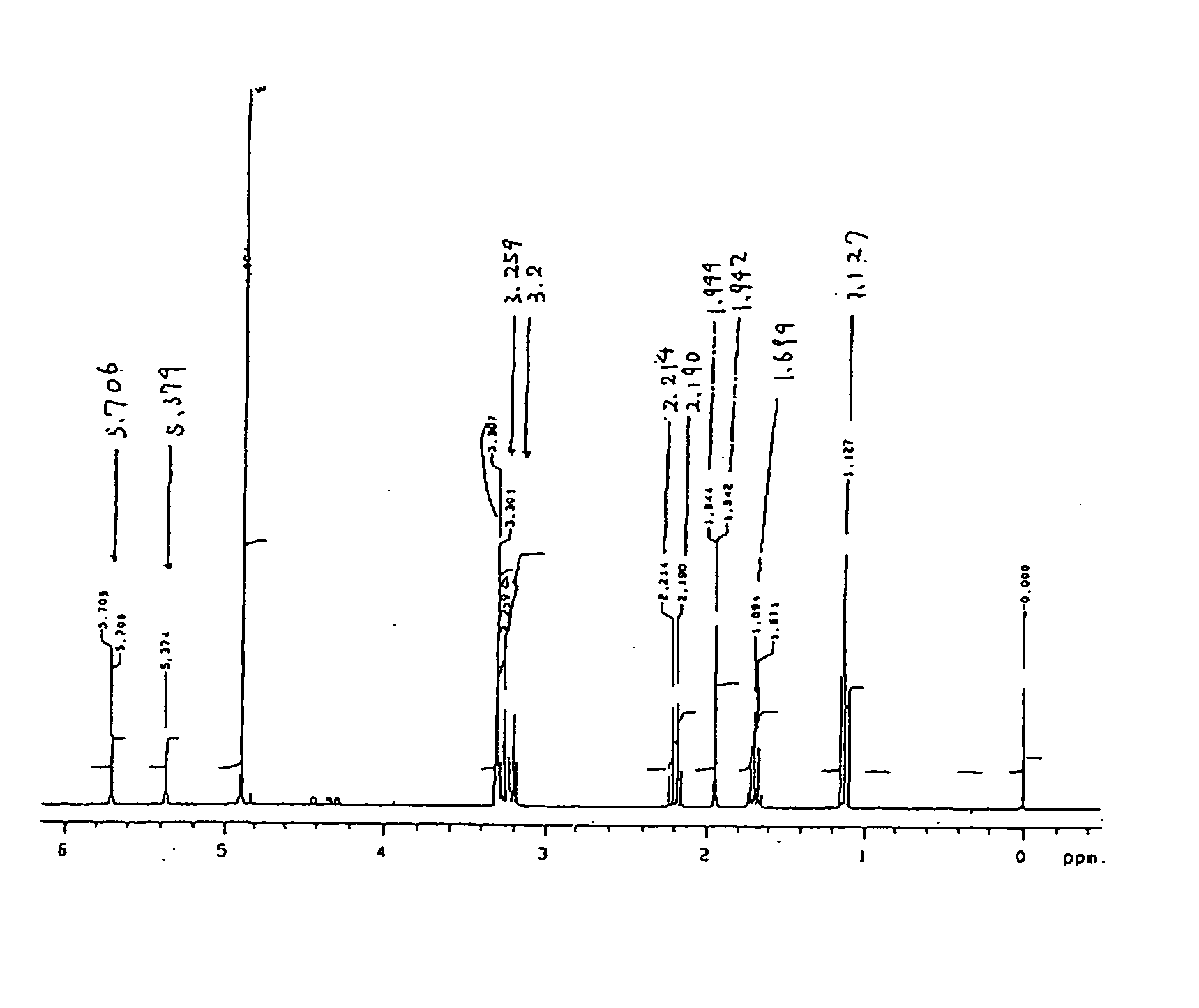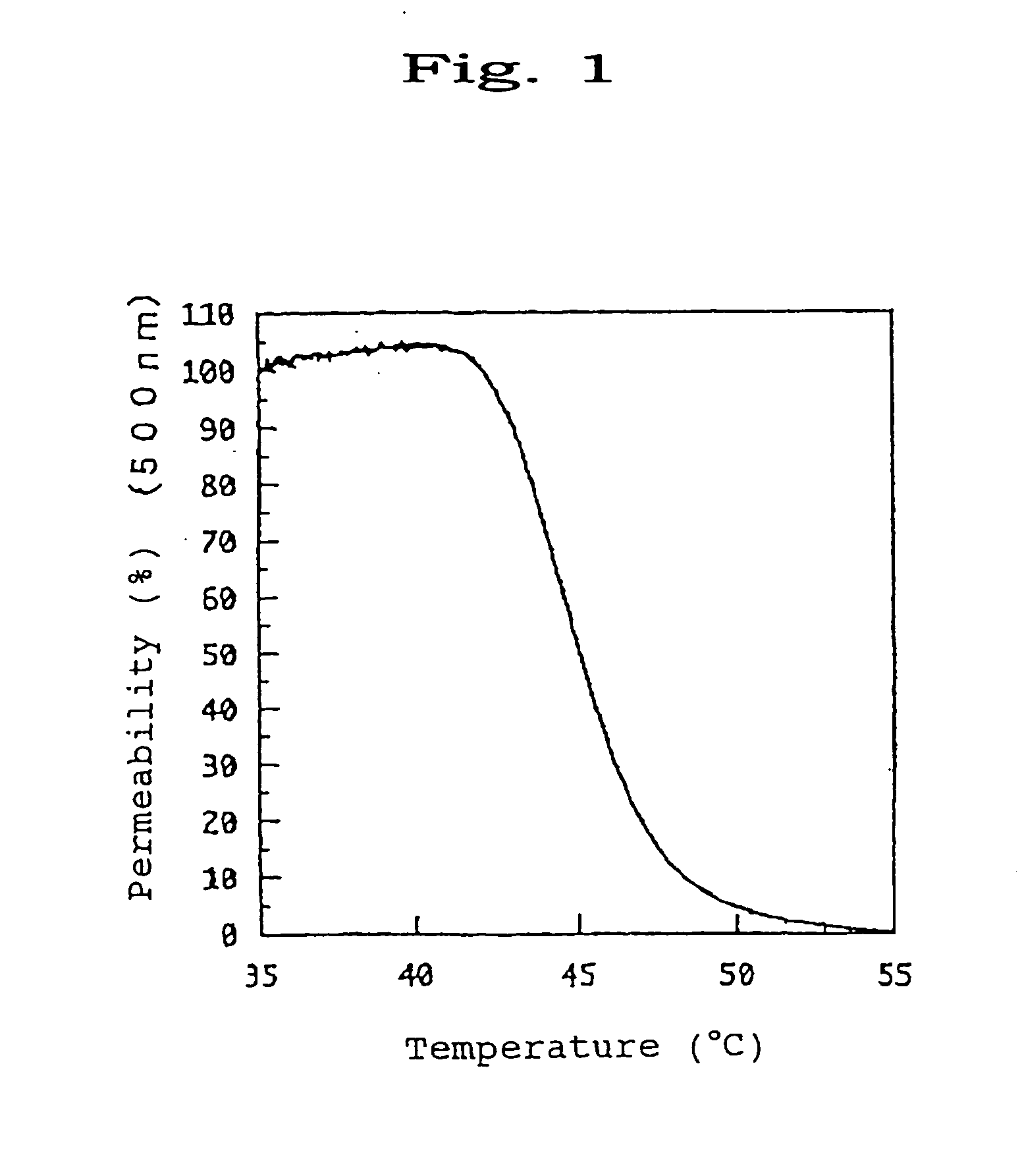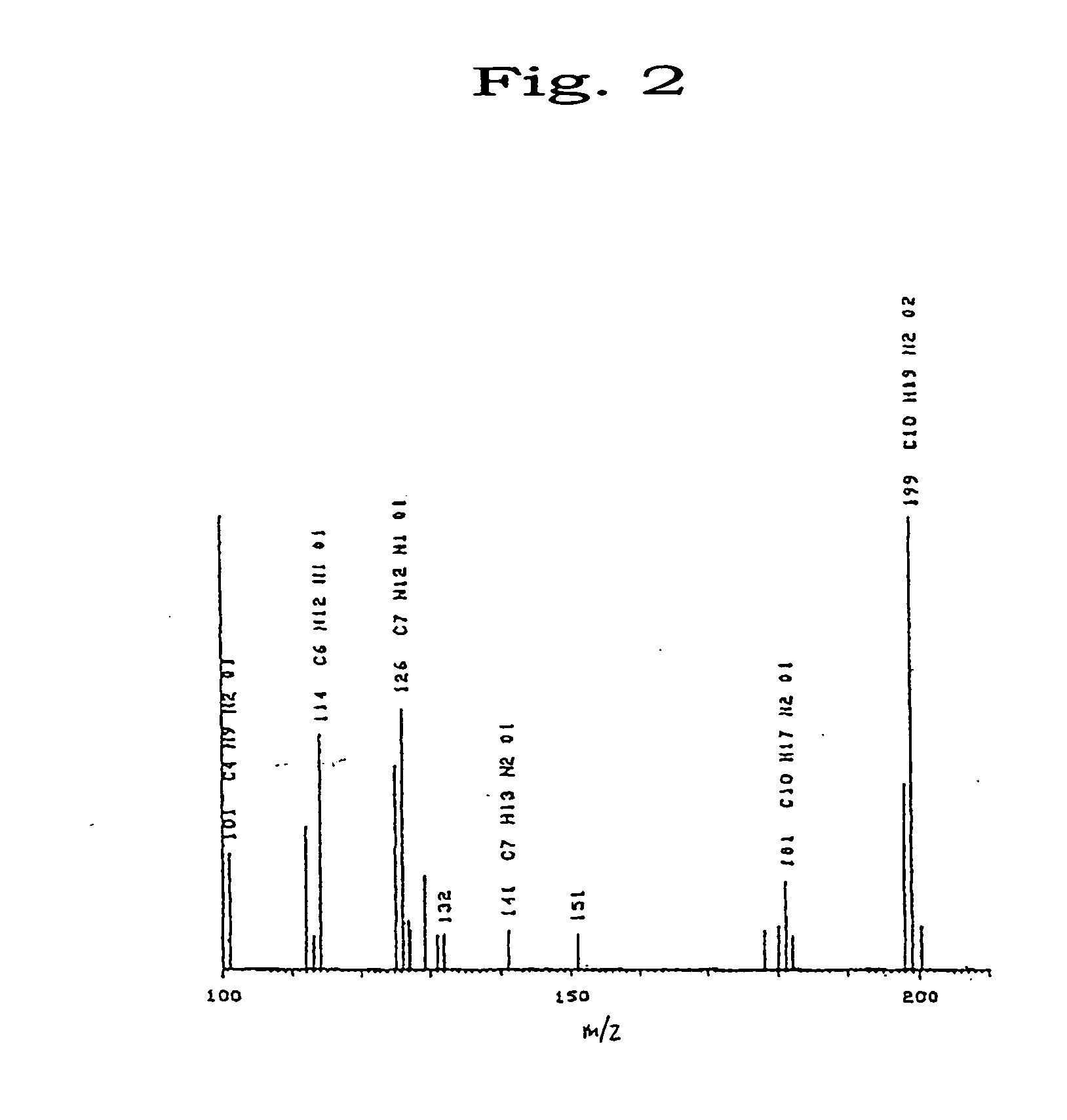Temperature-responsive polymer compound and process for producing the same
a technology of temperature-responsive polymer and temperature-responsive polymer, which is applied in the direction of other chemical processes, separation processes, instruments, etc., can solve the problems of poor hydrophobic nature or hydrogen bonding properties of alkylacrylamides, the inability to synthesize a heat-responsive polymer of the alkylamide type, and the inability to provide a sufficient polarity in separating any protein
- Summary
- Abstract
- Description
- Claims
- Application Information
AI Technical Summary
Benefits of technology
Problems solved by technology
Method used
Image
Examples
examples
[0166] The present invention will be described in greater detail by reference to the following Examples, but it should be understood that the invention is not construed as being limited thereto.
example a1
Synthesis of poly-acetamide-propyl methacrylate
[0167] 0.9 g of 2-N-aminoethyl methacrylate hydrochloride was dissolved in a methanol solvent and 1.0 g of propionic anhydride and 0.9 g of triethylamine (TEA) were added thereto. The resultant mixture was stirred under ice-cooling for 4 hours. After the completion of the reaction, the solvent was distilled off with an evaporator and the precipitate was filtered off. The filtrate was recovered and introduced into a silica column. Thus, the eluate fraction containing the target product was taken up and subjected to recrystallization to thereby purify a precursor of the target product acetamide-propyl methacrylate (CH3CONH—(CH2)3—O—CO—C(CH3)═CH2) (yield: 75%). 0.3 g of this precursor was dissolved in 5 ml of n-propanol and 6.2 mg of 2,2-azobisisobutyronitrile (AIBN) was added thereto. Then, the mixture was polymerized at 75° C. for 12 hours under a nitrogen atmosphere. After the completion of the polymerization, the reaction mixture was ...
example a2
Synthesis of poly-propionamide-propyl acrylate
[0168] 4 g of 3-aminopropyl alcohol was dissolved in 100 ml of a dichloromethane solvent and 10 g of propionic anhydride and 0.9 g of triethylamine (TEA) were added thereto. The resultant mixture was stirred at 50° C. for 4 hours. After the completion of the reaction, the solvent was distilled off with an evaporator and the precipitate was filtered off. The filtrate was recovered and introduced into a silica column. Thus, the eluate fraction containing the target product was taken up and subjected to recrystallization to thereby purify a precursor of the target product propionamide-propyl acrylate (CH3CH2CONH—(CH2)3—O—CO—CH═CH2). 1.0 g of this precursor and 8 mg of 2,2-azobis(2-amidinopropane)dihydrochloride were dissolved in 10 ml of ethanol and polymerized at 70° C. for 3 hours. After the completion of the polymerization, an adequate amount of the solvent was removed with an evaporator. The residue was reprecipitated from an alcohol / e...
PUM
| Property | Measurement | Unit |
|---|---|---|
| Polarity | aaaaa | aaaaa |
| Acidity | aaaaa | aaaaa |
| Responsivity | aaaaa | aaaaa |
Abstract
Description
Claims
Application Information
 Login to View More
Login to View More - R&D
- Intellectual Property
- Life Sciences
- Materials
- Tech Scout
- Unparalleled Data Quality
- Higher Quality Content
- 60% Fewer Hallucinations
Browse by: Latest US Patents, China's latest patents, Technical Efficacy Thesaurus, Application Domain, Technology Topic, Popular Technical Reports.
© 2025 PatSnap. All rights reserved.Legal|Privacy policy|Modern Slavery Act Transparency Statement|Sitemap|About US| Contact US: help@patsnap.com



